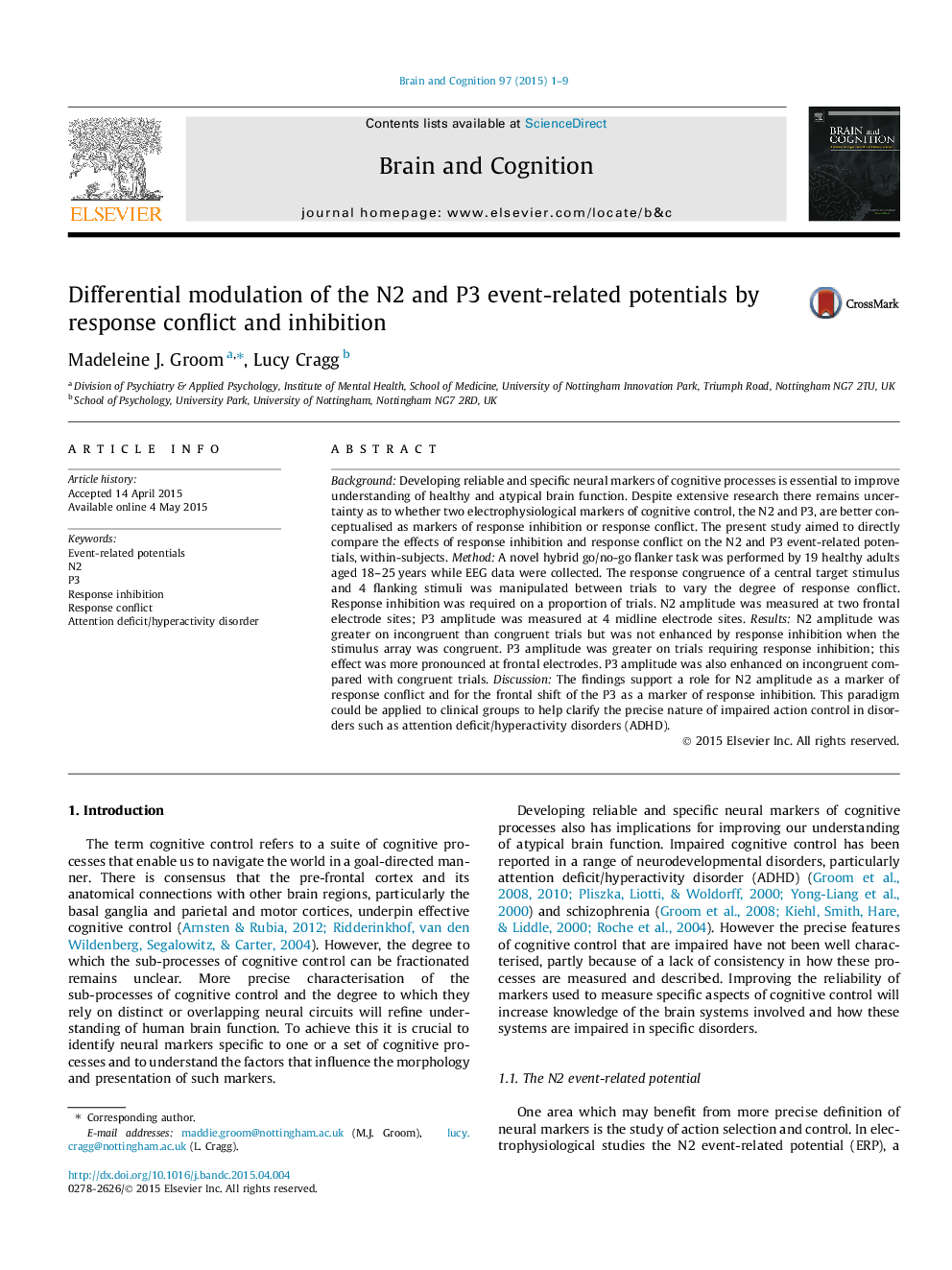| کد مقاله | کد نشریه | سال انتشار | مقاله انگلیسی | نسخه تمام متن |
|---|---|---|---|---|
| 923934 | 1473974 | 2015 | 9 صفحه PDF | دانلود رایگان |

• Response inhibition and response conflict yield dissociable effects on the N2 and P3.
• The N2 is modulated by flanker-induced response conflict but not inhibition.
• P3 amplitude displays a frontal shift in topography for response inhibition only.
• The specificity of these ERPs may improve understanding of action control.
• The specificity of these ERPs may improve understanding of disorders such as ADHD.
Background: Developing reliable and specific neural markers of cognitive processes is essential to improve understanding of healthy and atypical brain function. Despite extensive research there remains uncertainty as to whether two electrophysiological markers of cognitive control, the N2 and P3, are better conceptualised as markers of response inhibition or response conflict. The present study aimed to directly compare the effects of response inhibition and response conflict on the N2 and P3 event-related potentials, within-subjects. Method: A novel hybrid go/no-go flanker task was performed by 19 healthy adults aged 18–25 years while EEG data were collected. The response congruence of a central target stimulus and 4 flanking stimuli was manipulated between trials to vary the degree of response conflict. Response inhibition was required on a proportion of trials. N2 amplitude was measured at two frontal electrode sites; P3 amplitude was measured at 4 midline electrode sites. Results: N2 amplitude was greater on incongruent than congruent trials but was not enhanced by response inhibition when the stimulus array was congruent. P3 amplitude was greater on trials requiring response inhibition; this effect was more pronounced at frontal electrodes. P3 amplitude was also enhanced on incongruent compared with congruent trials. Discussion: The findings support a role for N2 amplitude as a marker of response conflict and for the frontal shift of the P3 as a marker of response inhibition. This paradigm could be applied to clinical groups to help clarify the precise nature of impaired action control in disorders such as attention deficit/hyperactivity disorders (ADHD).
Journal: Brain and Cognition - Volume 97, July 2015, Pages 1–9